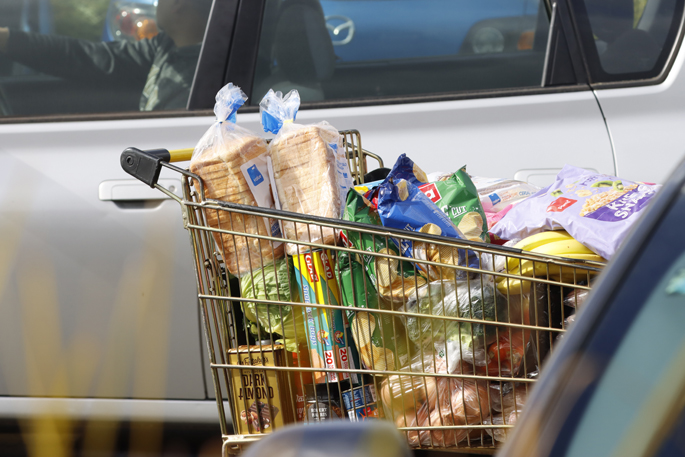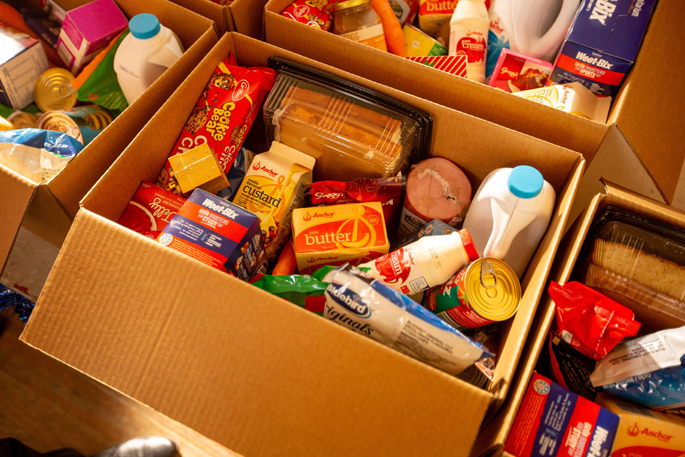A new survey of 43 food charities from around the country has revealed that the demand for food support continues to skyrocket.
This is a result of the long-lasting impacts of Covid-19 and the ever increasing cost of living, says a statement from the New Zealand Food Network.
The NZFN ran the survey to ask the food hubs it works with about their experience with food support between January and June 2022.
The results found that the top three reasons for requesting food support are low household income due to low paying jobs (79 per cent), unemployment (70 per cent), and Covid-19 isolation (60 per cent).
Results also suggests that the pandemic has had a serious impact on some of the more vulnerable members of society.
Nearly half (49 per cent) of the food hubs reported senior citizens living on low fixed income (such as pensions), 44 per cent said people living with disability, sickness or injury (44 per cent), and 37 per cent said those who have lost employment due to Covid-19 had sought food support from them.
The survey showed that NZFN food hubs support more than half a million people per month and the actual numbers are likely to be much higher.
Their ability to meet the current levels of demand was 3.6/5 (one being poor and five excellent), indicating a need for more donations throughout Aotearoa to cope with the increasing pressure.
People accessing the NZFN registered food hubs were mainly requesting staple food items such as meat, dairy and fresh produce which are generally the hardest to come by in food rescue.
NZFN chief executive Gavin Findlay says the statistics clearly show there is more work to do to ensure people's needs are being met by food support organisations and food businesses.
 Gavin Findlay.
Gavin Findlay.
'We saw unprecedented demand for food over lockdown, and with every major alert level change came surges in demand.
'Even though all but a few Covid-19 restrictions have now been dropped, our survey results show the extent to which they have seriously impacted Kiwis.
'This, along with rising inflation, means food insecurity is likely to get worse. Our food supply system produces thousands of tonnes of surplus/waste so we will continue to connect the dots and help our donor partners to divert more perfectly good food that would otherwise go to landfill, towards those struggling to afford the basics.”
As the pandemic worsened these problems, NZFN was born with the support of the Ministry of Social Development which fully funds NZFN's mission.
NZFN has now built a strong network across the food supply chain which enables it to connect food surplus and demand efficiently and at scale.
This has transformed the food rescue industry.
NZFN has succeeded in getting large volumes of surplus food, much of which would have gone to waste, into communities in need like no other solution before.
NZFN has a remit to keep closing the gap between surplus food from food businesses and communities in need.

One of NZFN's recipient food hubs, Te Rūnunga o Te Whānau, provides food support for Te Whānau ā Apanui iwi in the eastern Bay of Plenty.
Louise Schroder, Community Connector, reiterates the positive impact NZFN has had in their region.
'We are very grateful for what we've received. We're a remote community with high levels of poverty, co-morbidities and mortality rates, so services like NZFN are one of the many essential components in uplifting our whānau of Te Whānau ā Apanui Iwi.
'Getting produce to our doorstep is a major issue due for freight companies - NZFN staff have been advocating for us and we appreciate their efforts. Ngā mihi ki a koutou katoa.”
'Thanks to NZFN, Kai With Love are able to give an excellent variety of decent food to between 2000-3000 people across the Nelson Tasman Region, each month. We couldn't do it without them,” says Kai With Love chief executive Abigail Packer.
Good Neighbour's Ingrid Klein-Ovink notes that need has increased 15 per cent-to-20 per cent over the last six months in the community organisations that they help.
'Our recipient organisations are finding it really challenging to keep up with demand.”
NZFN already has the infrastructure and operational capability to offer food businesses (growers, manufacturers, wholesalers, retailers) the opportunity to do good with their bulk surplus, but help from the wider business sector is still needed to keep up with the increased demand.
Please consider becoming a food donor at: https://www.nzfoodnetwork.org.nz/s/sign-up-donate?language=en_US



2 comments
Ah its covid
Posted on 10-11-2022 12:19 | By an_alias
Was it covid that closed down the country, closed business and forced mandates ? Ah so it was, covid did that and not the govt, how could I have been so stupid
Kindness.
Posted on 10-11-2022 13:20 | By morepork
While it is heart-warming to see the innate kindness in Kiwis being manifested with help to people in need, that kindness is not something that Government should take for granted, and expect individual groups and charities to pick up the results of negligent/bad policy. The food industry needs some regulation and they have shown they won't do it voluntarily. I am strongly against Government meddling in business, but when that business is making obscene profits and causing hardship to ordinary people, dealing products they cannot simply refuse to buy, then if the government doesn't address it, who will? This Government is manipulated politically by its coalition partners, and seems to be at the mercy of every lobby group, especially, and including, large corporates. It shows all of the backbone and strength of a rag doll. People need help with food prices; ACTION is required...
Leave a Comment
You must be logged in to make a comment.